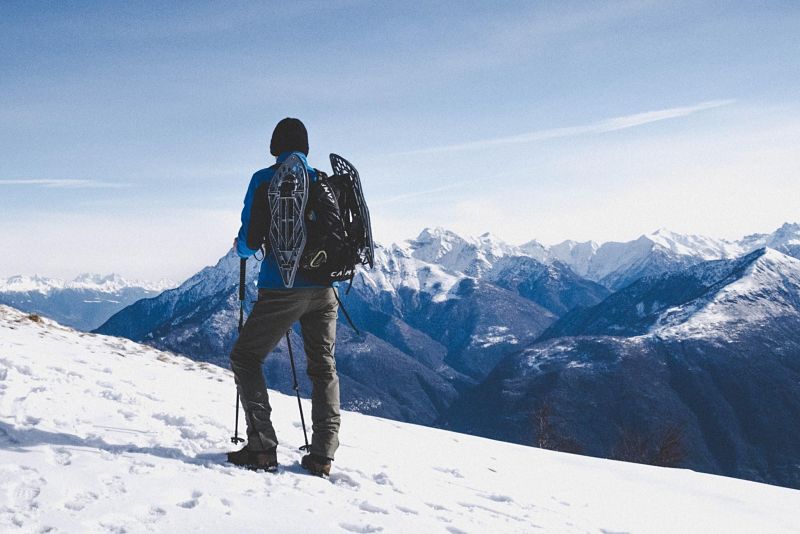Top 5 tips for coping with altitude sickness

Worried about altitude sickness? Read on for our best tips to avoiding the health effects of higher altitudes, and how to keep yourself safe on the mountains.
Top 5 tips for coping with altitude sickness
Acute mountain sickness is a condition brought on by ascending to high altitudes without giving the body enough time to acclimatise. Its effects are commonly felt by climbers who reach heights exceeding 10,000 feet above sea level; age and personal fitness levels do not reduce your chances of experiencing altitude sickness.
Reduced air pressure means each breath we take brings fewer oxygen molecules into the body, causing a build-up of fluid around the lungs and brain, and producing a number of symptoms including shortness of breath, confusion and dizziness, nausea, vomiting, fatigue and difficulty sleeping.
Many people believe that altitude sickness is a direct result of climbing to high altitudes, but the human body is remarkably capable of ‘adjusting’ to a decrease in atmospheric pressure. Rather, altitude sickness is typically brought on by climbers making a rapid ascent that does not give the body ample time to adjust.
Read more on our tips for avoiding altitude sickness on your next climb.
1.Take it Slowly
Driving, or taking a helicopter, to a higher altitude may make the experience much simpler, but your body needs time to adjust to the shift in air pressure. It is true that our bodies are able to adapt to lower oxygen levels but, if the climb is made too quickly, then you make yourself more vulnerable to the debilitating effects of low oxygen.
Pushing your body beyond its natural limits will not improve altitude sickness and will make you vulnerable to much more extreme conditions that, without proper treatment, could be life threatening.
2. Drink Water, Not Alcohol
Heavier breathing causes us to lose more fluids, and replacing those fluids with plenty of fresh, clean water will prevent you from suffering from the symptoms of dehydration — many of which are very similar to the effects brought on by acute altitude sickness.
Alcohol, on the other hand, is a respiratory depressant, which can be significantly more damaging at higher altitudes, where breathing is more difficult. It is also a diuretic, which inhibits the production of ADH in your system and causes you to expel more fluids. Drinking alcohol will increase the risk of you becoming dehydrated, and exacerbating the symptoms of acute altitude sickness.
3. Take Your Medication
While there is no definitive cure for acute altitude sickness, Diamox has been shown as an effective altitude sickness treatment, which works by reducing excess fluid around the brain and lungs. It is also used to lower your blood pH, which can help to prevent respiratory alkalosis — a common symptom caused by high altitude areas.
Since altitude sickness is typically experienced as a result of ascending to higher altitudes too quickly, Diamox can be used to resolve symptoms while efforts for proper acclimatisation are made, such as resting at a lower altitude and climbing no more than 1,000 vertical feet each day.
4. Sleep at a Lower Altitude, and Schedule Rest Days
You may have heard the motto “Climb High, Sleep Low” before. Typically, it is recommended that you climb around 1,000 vertical feet each day, then retrace your steps and set up camp at a lower altitude. This is because, at night, when you are trying to sleep, your body can struggle to maintain a normal breathing rhythm; sleep apnoea is much more common, which can leave you feeling sleep-deprived and weak in the morning.
Sleeping at a lower altitude will give your body some much needed time to adjust, and keep you safe and well the higher you climb. Many climbers experience disturbed sleep, even if they are not suffering from altitude sickness, and ensuring you are doing everything possible to rest your mind and body is essential to a successful, enjoyable, and safe climb.
5. Treat Any Symptoms as Proof of Altitude Sickness
When it comes to altitude sickness, it is important that you always err on the side of caution and treat any symptoms as proof that you are suffering. If the symptoms of altitude sickness are ignored, and you continue to expose your body to an altitude it has not yet adjusted to, then you could develop a life-threatening condition in your brain and lungs.
If you begin to experience any symptoms, then begin an immediate descent back to lower altitudes, and take your altitude sickness medication. If it is not possible to begin your descent straight away, then Diamox can help you to manage the symptoms until you are able to reach a lower altitude.
Tags : altitude sickness treatment prescription medicine travel pack free online doctor consultation
